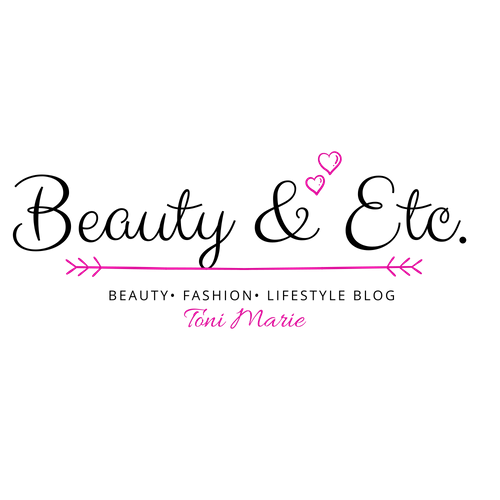What is Clean Beauty? Everything You Need To Know!
With the talk of so many brands and people wanting to be more green, the term “Clean Beauty” really sparked my interest. I decided to do some further research as skincare and preservation factors are really important to me. While browsing through the Sephora app (too many times), I noticed a green label, “Clean at Sephora”, on multiple products I currently use and future products I want to test out.
After doing some additional browsing on the Sephora page, I came across the actual landing page for Clean at Sephora. The Clean at Sephora page highlights Clean Skincare, Clean Makeup, Clean Hair-care and Clean Fragrances.
What is “Clean Beauty”?
You may be asking, what exactly is “Clean Beauty”. The term ‘Clean at Sephora” according to Sephora are products that are formulated without the following:
Sulfates SLS and SLES, parabens, formaldehydes, formaldehyde-releasing agents, phthalates, mineral oil, retinyl palmitate, oxybenzone, coal tar, hydroquinone, triclosan, triclocarban.
All of these skincare, hair, and makeup brands with the Clean Seal have less than one percent of synthetic fragrances.
Ingredients BreakDown
Source: Art of Organics
Why we should be “Suspicious”
One of my favorite Skincare brands, Drunk Elephant, coined the term “Suspicions 6” to explain that their products avoid the following ingredients that are known to be harmful such as (Essential Oils, Drying Alcohols, Silicones- (can go by other names- usually ends in -cone), Chemical Screens, Fragrance/Dyes and SLS,) and why we should avoid these ingredients.
Sulfates SLS and SLES- according to Drunk Elephant- these ingredients are known to be a harsh cleansing component that strips the protective barrier layer of the skin
Parabens- are often used to preserve the shelf life of products by preventing the growth of mold and bacteria within them. Parabens are believed to disrupt hormone function by mimicking oestrogen.
Essential Oils- often linked to fragrances- can make the skin and keep it in a reactive mode
Drying Alcohols- (SD alcohol, denatured alcohol, alcohol denat, natural alcohol, grain alcohol , ethy alcohol) - leads to drying and damaging the skin thus destroying the barrier level
Chemical Screens- avobenzone, oxybenzonem octocrylene, octinoxate and octisalate.- can lead to breakouts
Fragrances/Dyes- harmful and irritating
Silicones- (can go by other names- usually ends in -cone) can dehydrate the skin and block absorption of key ingredients
What Is Natural Skincare?
Clean Vs. Natural According to the FDA, words like "natural" "non-toxic," "clean," and "safe" have absolutely no official or legal meaning when it comes to cosmetic labeling, yet they're being used more than ever.
Natural Skincare is defined as plant-derived ingredients, which may include herbs, roots, flowers and essential oils, but natural substances in skin care products include animal-derived products such as beeswax, and minerals
Before doing my research for this post I honestly thought beauty products that were Clean and Natural meant the same thing. Now I understand Natural products labels can be vague.
A company or brand may label a product as being natural as they are derived from plants and nutrients, but there’s no way to be sure that pesticides or toxins are not being used in the growth process. They may also label a product as natural because it contains one or two natural ingredients, but may still have synthetics or chemicals.
Benefits
You may ask why it’s so important to use clean or natural products? Well, our skin absorbs up to 60-70 percent of products that we apply to it. Using less harmful ingredients can definitely reduce the harmful ingredients that are being absorbed by our skin and into our body.
The idea of investing into great skincare is in the efforts that these products will aid in protecting and enhancing your skin. I expect that if I’m spending top dollar for a cleanser or a moisturizer that I’ll be receiving a product that will only have positive effects on my skin.
After reading through the labels in my current beauty products, I was happy to see that many of my favorites were included. But I was also surprised to see that some of the brands that I really enjoy that claim to be clean did not make the cut.
Moving Forward With My Beauty Routine
This post is not to discredit or tell people what to use and what not to. It’s more to bring awareness. I think a big part of your beauty/skincare routine is actually paying attention to how your skin responds to the products that you’re using.
Many of products that I currently use would be considered natural or clean. But there’s still a portion that is not. I would eventually like to move to more cleaner products, but I know it’s not something that I can achieve overnight.
I would love to start my clean beauty swap out by switching my facial cleansers, shampoos/conditioners and deodorants in the next few weeks-months. As I make these changes, I’ll be sure to document my journey as I start to switch out these products.
Clean Beauty







